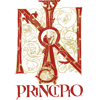 Usually it's very hard to live in a way of life that you think does not fulfill your expectations, so it was a hard thing to first acknowlidge that things weren't going the way that I wanted them to be. This is why it took me first a lot of time to inspect my own religion or the way that my Church goes about it in it's tradition and beliefs. So what do you do first when you're in doubt about your religion? You go to a priest.
Usually it's very hard to live in a way of life that you think does not fulfill your expectations, so it was a hard thing to first acknowlidge that things weren't going the way that I wanted them to be. This is why it took me first a lot of time to inspect my own religion or the way that my Church goes about it in it's tradition and beliefs. So what do you do first when you're in doubt about your religion? You go to a priest.Older priests in my country had started their practice during Communist times which enabled them to create a tradition of religion that might suit the goals of the system, which preached that "religion is the opium for the masses" so tradition was more important than faith. So people didn't learn any prayers and weren't taught in their religion.
So bearing that in mind, I was told that I shouldn't bother myself with such things, and that it was their job (the priests' job) to deal with the questions of God.
Prohibition does wonders to a young man's mind. I went deeper into the subject by looking for some books and articles on religion and about whether my religion was the one that had the truth.
This is the period when I started doing a more intense study of the Bible with the help of different materials which came from different pamphlets and internet sites by different Christian sects (or whatever they are called) which helped me get a basic understanding of what the Holy Scripture was. I couldn't understand why the priest I talked to didn't tell me to go to the Bible for answers; that's what priests used to do on films, and I read lots of commentaries by different priests who actually suggested a certain amount of Bible study for the practicing Christian.
Meanwhile I found out that prayer was something to be said, so I started learning pace by pace how a Christian should really pray. At that time a new magazine on Orthodoxy was being issued and I had the opportunity to read more about it, and about the "do's and don'ts". I tried to follow many of these advices, but I was always pulled back by my environment which didn't accept religion as a way of life, but as a way of differenting between peoples and nations.
People here, usually attend the liturgy if they are told to or if there's a big holiday (Christmas or Easter) so that it has become a part of the lifestyle of the population that they should follow their own religion (as a counter-influence of the Muslim tradition of regular attending prayers and everything).
On this crossroad of my life I decided that I will practice whatever I think secretly, and I will perform my public duities as I was supposed to do. It wasn't easy, but I did it. I found an Orthodox priest online who told me that what I was doing was right and encouraged me to follow the path I have selected.
But something was wrong. My lifestyle didn't go allong with the choice that I had made to follow God as He would instruct me, and as his earthly representative (the Church) would tell me.
I prayed one day saying "God, please lead me to the right path and I will obey your wish".
This is the time when I started reading about Church history and the 11. century split between Orthodoxy and Catholicism.
The magazine gave an article commemorating the visit of the late Pope John Paul II to Greece, and discussed certain aspects of difference between Roman Catholicism and Eastern Orthodoxy. I think that this would be my initial close encounter with the Catholic faith. I started watching Catholic Masses from Italy and from my country and I was astonished by them. The organization of the Church and the complete hierarchy and the order it gave was the most appealing thing to me at that time (and if I might add, it still is).
I was given a chance in life, a chance to choose. And I had a new topic on my mind that I had to explore the Western way of life, the way of moving away from the East and tradition, towards something that appealed to me after such a long time. I finally had the right choice to make, and Deo gratia, I finally was able to have at least a small ray of light from our Heavenly Father.

